As a conscious traveler, you’re seeking destinations that prioritize the environment and local communities. Stop your search here at the top 10 sustainable travel destinations leading the way in 2024. From Costa Rica’s eco-tourism efforts and Norway’s green tourism revolution to Iceland’s renewable energy powerhouse and New Zealand’s conservation success, these destinations are paving the way for sustainable travel. Tasmania’s pristine wilderness areas, Portugal’s sustainable tourism practices, and Dominica’s resilient tourism development also make the cut. Bhutan, Scotland, and Valencia round out the list, each offering unique sustainable travel experiences that support local economies and preserve cultural heritage. Your next sustainable adventure awaits.
Key Takeaways
- Costa Rica, Norway, and Iceland top the list for their commitment to eco-friendly practices and conservation efforts.
- Bhutan and New Zealand prioritize environmental conservation and cultural preservation through sustainable tourism initiatives.
- Scotland, Tasmania, and Portugal focus on rewilding landscapes, conservation efforts, and community engagement to promote sustainable tourism.
- Valencia and Dominica prioritize environmental preservation and community development through sustainable infrastructure and eco-lodges.
- These destinations offer a range of sustainable experiences, from eco-certified accommodations to immersive cultural experiences and wildlife preservation.
Sustainable Travel on the Rise
As you consider your next travel destination, you’re likely to find that sustainable travel options are on the rise, with more countries and cities prioritizing eco-friendly practices and responsible tourism initiatives.
Eco-friendly airlines are reducing carbon emissions, while sustainable travel apps help you make environmentally conscious choices on the go.
Responsible travel blogs share tips on minimizing your environmental impact, from reducing plastic use to respecting local cultures.
With growing environmental impact awareness, travelers are seeking green travel incentives, such as carbon offsetting and eco-certified accommodations.
As a result, the travel industry is shifting towards more sustainable practices, making it easier for you to explore the world while minimizing your footprint.
Costa Rica’s Eco-Tourism Efforts
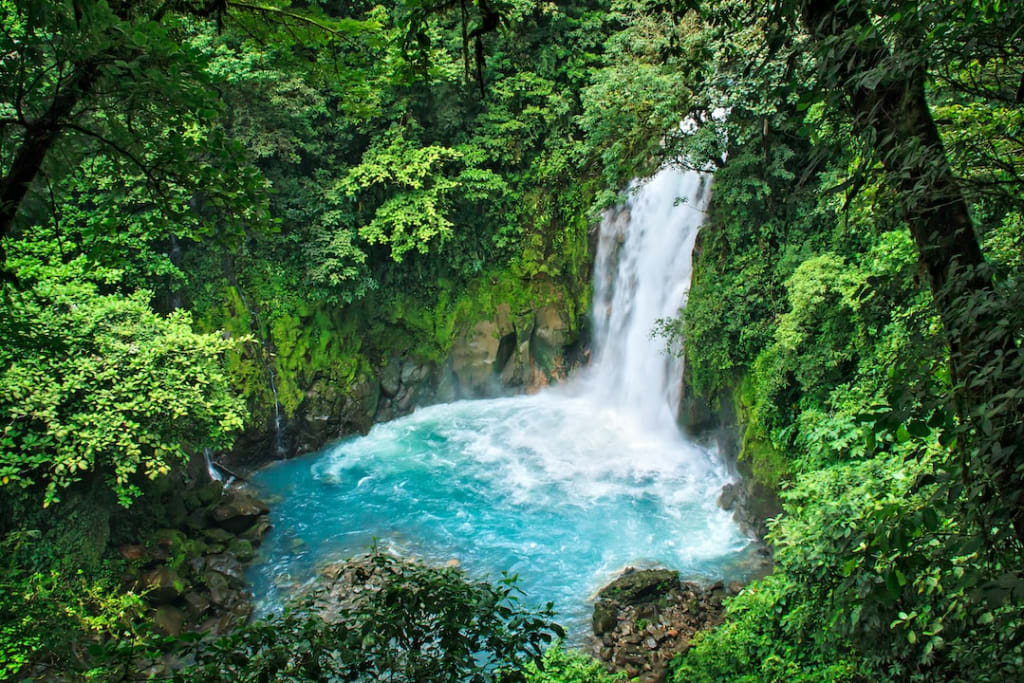
With sustainable travel on the rise, Costa Rica stands out as a prime example of a country that has successfully integrated eco-tourism into its national identity, making it an attractive destination for environmentally conscious travelers.
By visiting biodiversity hotspots, you’ll be contributing to the conservation of these areas. The development of eco-lodges provides sustainable accommodations while supporting local communities.
Wildlife corridors allow for the free movement of animals, ensuring the health of ecosystems.
Community engagement is a key aspect of Costa Rica’s eco-tourism efforts, with many initiatives focused on supporting local economies.
You can also participate in conservation volunteering, helping to protect the country’s incredible natural heritage.
Norway’s Green Tourism Revolution

Norway’s pioneering efforts in sustainable tourism have led to the development of a thorough framework that not only minimizes the country’s environmental footprint but also enhances the overall travel experience for visitors.
As you explore Norway’s stunning fjords, you’ll notice the country’s commitment to Fjord Conservation through initiatives like strict emissions regulations for cruise ships.
Eco-Friendly Cruises are also on the rise, offering a guilt-free way to experience Norway’s breathtaking landscapes.
Local Empowerment is another key aspect of Norway’s sustainable tourism strategy, with initiatives that support local economies and preserve cultural heritage.
You’ll also discover innovative Green Innovations, such as electric ferries and climate-friendly accommodations.
Iceland’s Renewable Energy Powerhouse
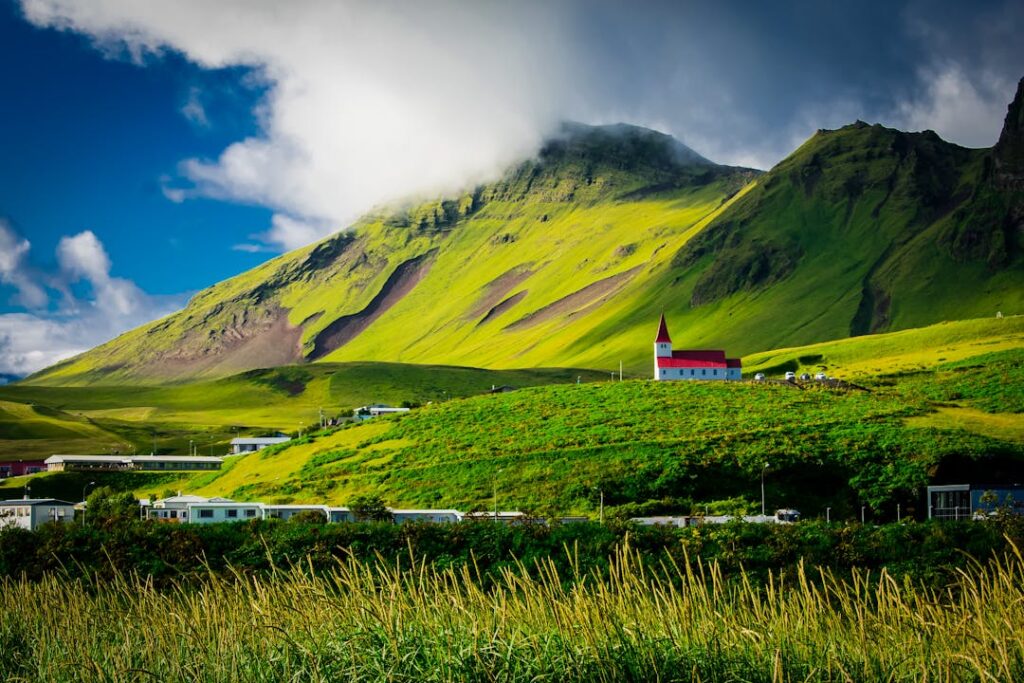
You’ve just explored Norway’s green tourism revolution, now it’s time to venture to the land of fire and ice, Iceland, a pioneer in renewable energy, where you can discover how geothermal and hydroelectric power shape its unique sustainable travel experiences.
As you explore Iceland’s stunning landscapes, you’ll notice the country’s commitment to renewable energy, with over 85% of its energy coming from geothermal and hydroelectric sources.
This energy self-sufficiency enables Iceland to power its cities, transportation, and tourism infrastructure sustainably.
Visit the Hellisheiði Geothermal Power Station to learn more about Iceland’s geothermal infrastructure.
With its focus on carbon neutrality, Iceland is an exemplary model for sustainable tourism, offering a glimpse into a future where renewable energy and sustainable practices coexist in harmony.
New Zealand’s Conservation Success
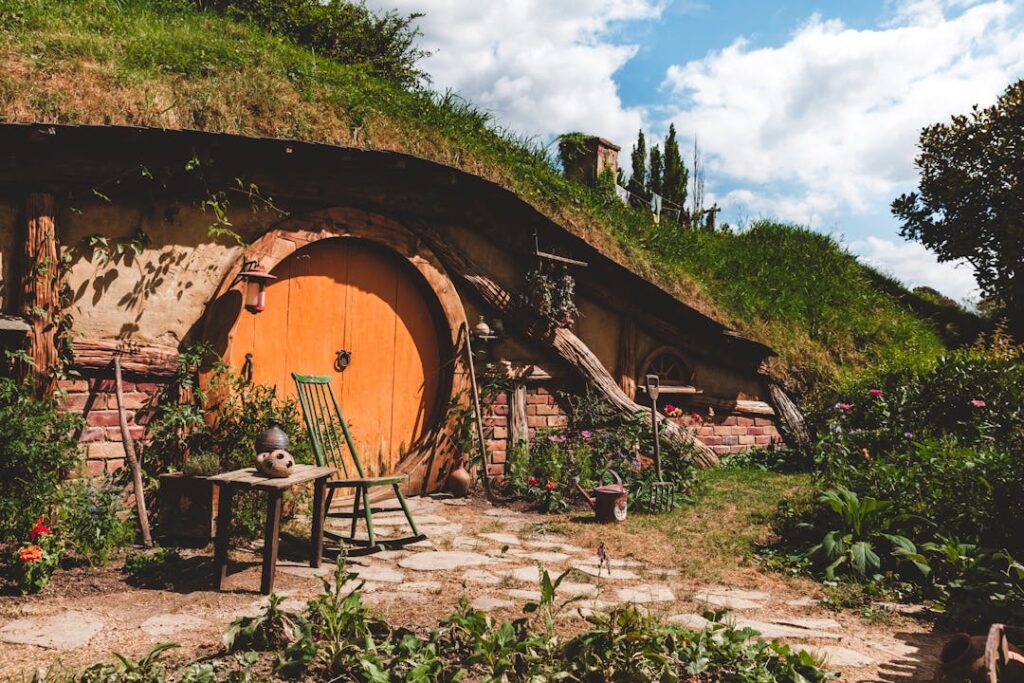
New Zealand’s pioneering approach to sustainable tourism is rooted in its deep-seated commitment to environmental stewardship and cultural preservation, making it an exemplary model for responsible travel practices.
You can experience Maori tourism firsthand by visiting eco-lodges that incorporate indigenous cultural heritage into their design and operations.
New Zealand’s dedication to wildlife preservation is evident in its protected national parks and wildlife sanctuaries.
As you explore the country’s stunning landscapes, you’ll have opportunities for indigenous encounters that foster cross-cultural understanding and respect.
By choosing to stay in eco-lodges and participating in responsible tourism activities, you’ll be supporting local communities and contributing to the preservation of New Zealand’s unique cultural heritage and natural environment.
This holistic approach to sustainable tourism makes New Zealand an ideal destination for eco-conscious travelers.
Bhutan’s Carbon Neutral Status

As you shift your focus from New Zealand’s conservation successes to Bhutan’s unique approach to sustainable tourism, you’ll discover a country that has perfected the balance between economic development, cultural preservation, and environmental conservation, earning its distinction as the world’s only carbon-neutral nation.
Bhutan’s commitment to environmental stewardship is evident in its eco-friendly infrastructure, which supports green transportation and sustainable tourism practices.
The country’s high-value, low-volume tourism policy guarantees that tourism revenue directly benefits local communities while minimizing environmental impacts.
Carbon offsetting is also a key aspect of Bhutan’s approach, with the government investing in renewable energy sources and reforestation programs to maintain its carbon-neutral status.
Scotland’s Rewilding Initiatives

Scotland is pioneering rewilding initiatives, a crucial aspect of its sustainable tourism strategy, by restoring degraded habitats, reintroducing native species, and engaging local communities in the conservation of its majestic highlands.
You’ll see efforts to rewild landscapes, focusing on ecological restoration and the creation of wildlife corridors.
Native species reintroduction programs aim to rebalance ecosystems, while forest regeneration initiatives promote biodiversity.
VisitScotland encourages responsible tourism practices, supporting innovative sustainability projects and local communities.
By exploring Scotland’s rewilding initiatives, you’ll contribute to the country’s commitment to environmental conservation and community engagement.
As you experience the beauty of Scotland’s highlands, you’ll be part of a broader effort to protect and preserve its natural heritage for future generations.
Valencia’s Green City Transformation

Valencia’s transformation into a green city is exemplified by its commitment to environmental stewardship, innovative urban planning, and cultural preservation, making it a model for sustainable tourism in 2024.
As you explore the city, you’ll notice the extensive green infrastructure, including parks and gardens like the Turia Gardens, which has transformed a former riverbed into a lush green space.
Valencia’s urban planning prioritizes eco-friendly transportation, with expanded bike-sharing programs and improved public transport connectivity.
The city also emphasizes cultural preservation, promoting local markets, gastronomy, and community engagement.
By supporting local farmers, artisans, and conservation efforts, you’ll be contributing to the city’s sustainable tourism initiatives.
As a responsible traveler, you’ll be part of Valencia’s mission to become 100% renewable by 2025.
Tasmania’s Pristine Wilderness Areas
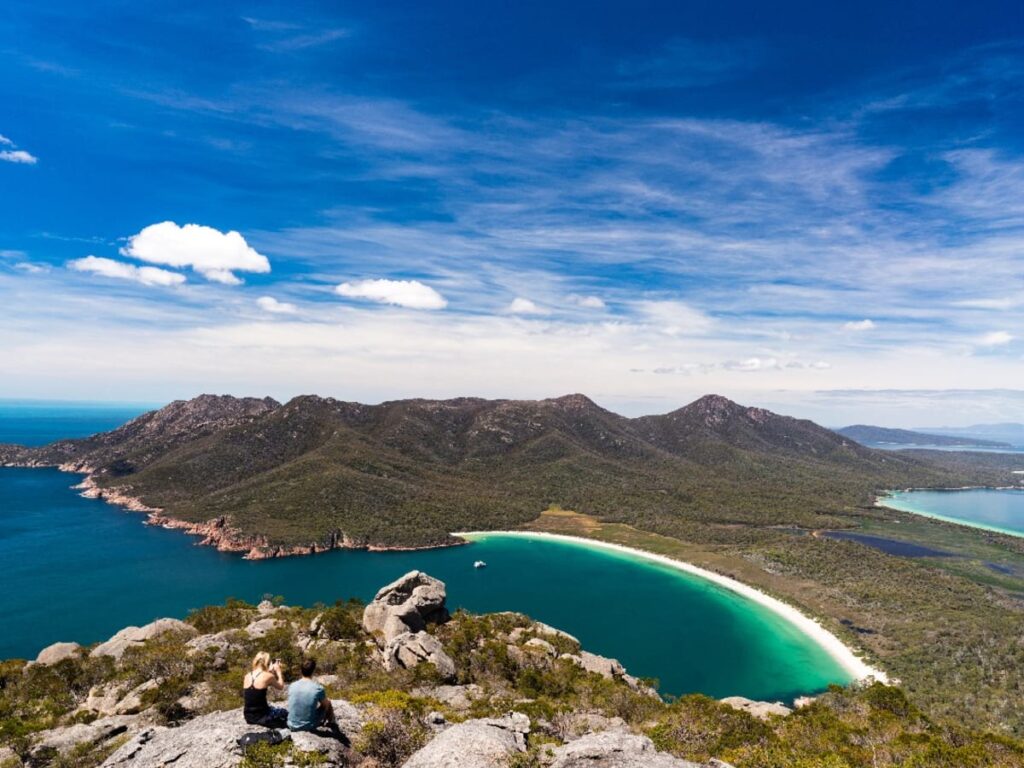
Tasmania’s pristine wilderness areas, characterized by rugged coastlines, towering mountain ranges, and ancient forests, offer a unique opportunity for you to experience the raw beauty of Australia’s southernmost state.
As you explore these untouched regions, you’ll notice the state’s commitment to conservation efforts, including the establishment of wildlife corridors and national park expansions.
These initiatives not only protect Tasmania’s unique biodiversity but also provide ecotourism benefits, supporting local economies and promoting sustainable tourism practices.
Additionally, indigenous land management practices are being recognized and respected, with many tourism operators partnering with Aboriginal communities to offer immersive cultural experiences.
Portugal’s Sustainable Tourism Practices
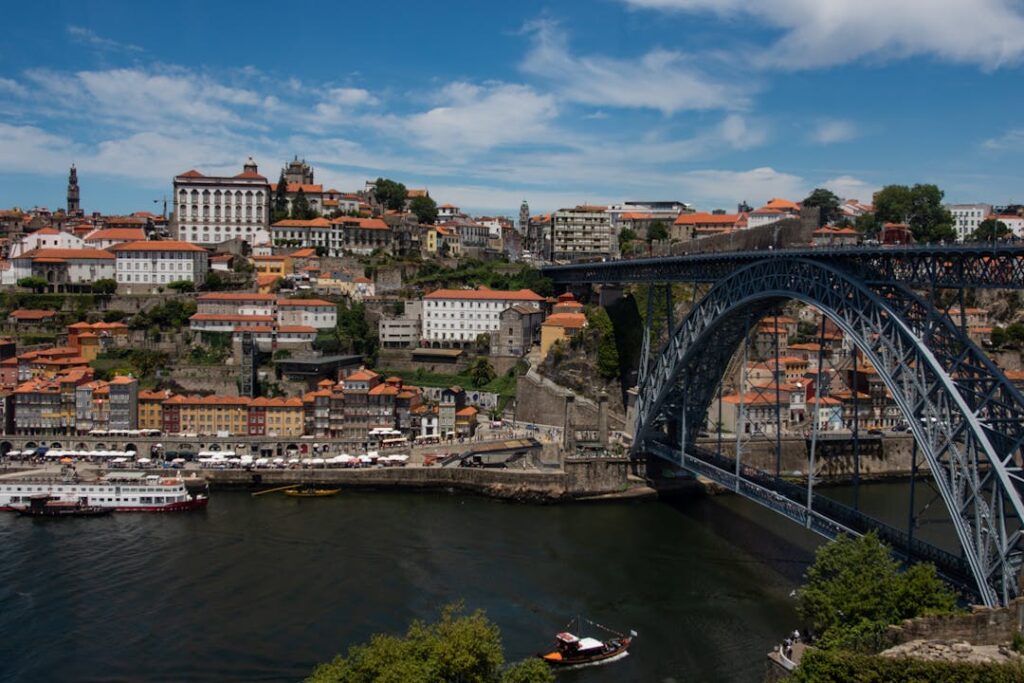
As you explore Portugal’s commitment to sustainable tourism, you’ll discover a multifaceted approach that prioritizes environmental conservation, community engagement, and cultural preservation, making it an exemplary model for responsible travel practices.
You can immerse yourself in local culture by staying in eco-lodges or sustainable accommodations that support rural communities. Engage with local artisans and participate in traditional crafts, fostering a deeper connection with the region’s heritage.
Portugal’s rural escapes offer a chance to unwind in nature, with opportunities for hiking, birdwatching, and exploring protected areas.
Dominica’s Resilient Tourism Development
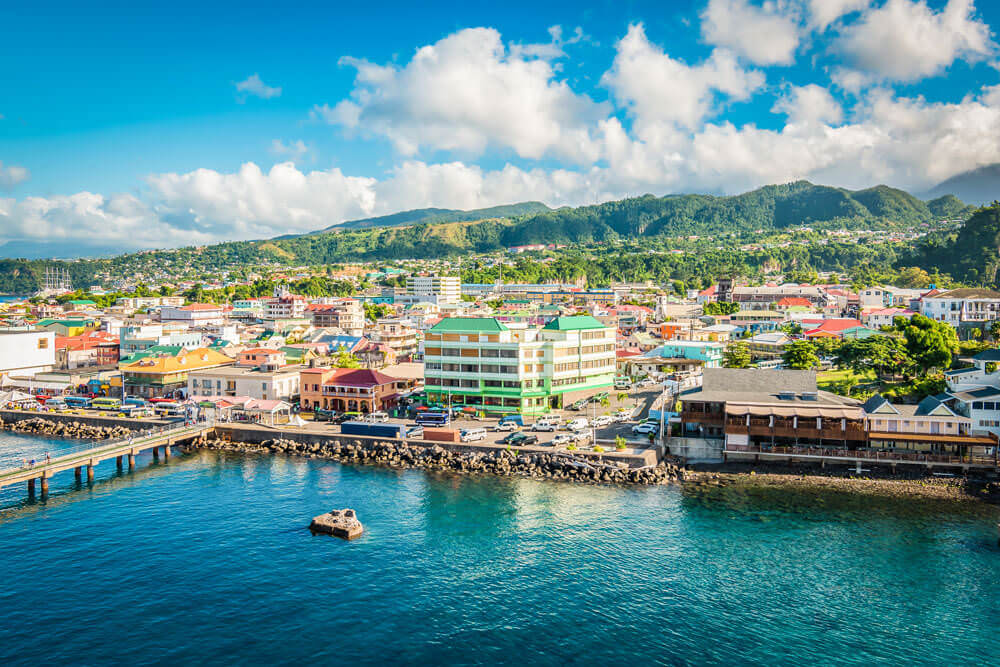
By exploring Dominica’s resilient tourism development, you’ll discover a multifaceted approach that prioritizes environmental preservation, community engagement, and innovative resilience strategies, making it a compelling model for sustainable tourism practices.
As you plunge into the island’s sustainable tourism initiatives, you’ll notice a strong focus on climate resilience, eco-lodges development, and community empowerment.
Some of the key features of Dominica’s approach include:
- Renewable Investments
Dominica is investing in renewable energy, particularly geothermal power, to achieve energy independence and sustainability by 2030. - Community Empowerment
The government is actively engaging local communities in tourism initiatives, allowing them to manage and benefit from tourism projects. - Cultural Heritage
Dominica’s sustainable tourism strategy emphasizes the preservation of its cultural heritage, including the development of community tourism projects that showcase the island’s unique cultural identity.
Choosing Sustainable Destinations Wisely
When selecting sustainable travel destinations, it’s crucial to ponder the environmental, social, and economic implications of your decisions, and to explore beyond the surface-level claims of eco-friendliness.
Consider what matters most to you as a traveler – cultural immersion, community engagement, or eco-friendly accommodations.
Look for sustainable certifications, such as eco-labels or green tourism awards, to guarantee your destination meets your expectations.
Be aware of the potential impact of your visit on local communities and the environment.
By doing your research and choosing destinations that align with your values, you can contribute to a more responsible and sustainable tourism industry.
This thoughtful approach won’t only enhance your travel experience but also help preserve the destinations you visit for future generations.
Conclusion
As you set out on your sustainable travel journey, remember that every destination is a thread in the intricate tapestry of our planet.
Weave your choices wisely, and you’ll be part of a vibrant narrative that’s redefining the future of tourism.
By choosing destinations that prioritize the environment and local communities, you’re not just a traveler – you’re a catalyst for positive change, leaving a lasting legacy that’s as enduring as the landscapes you explore.
